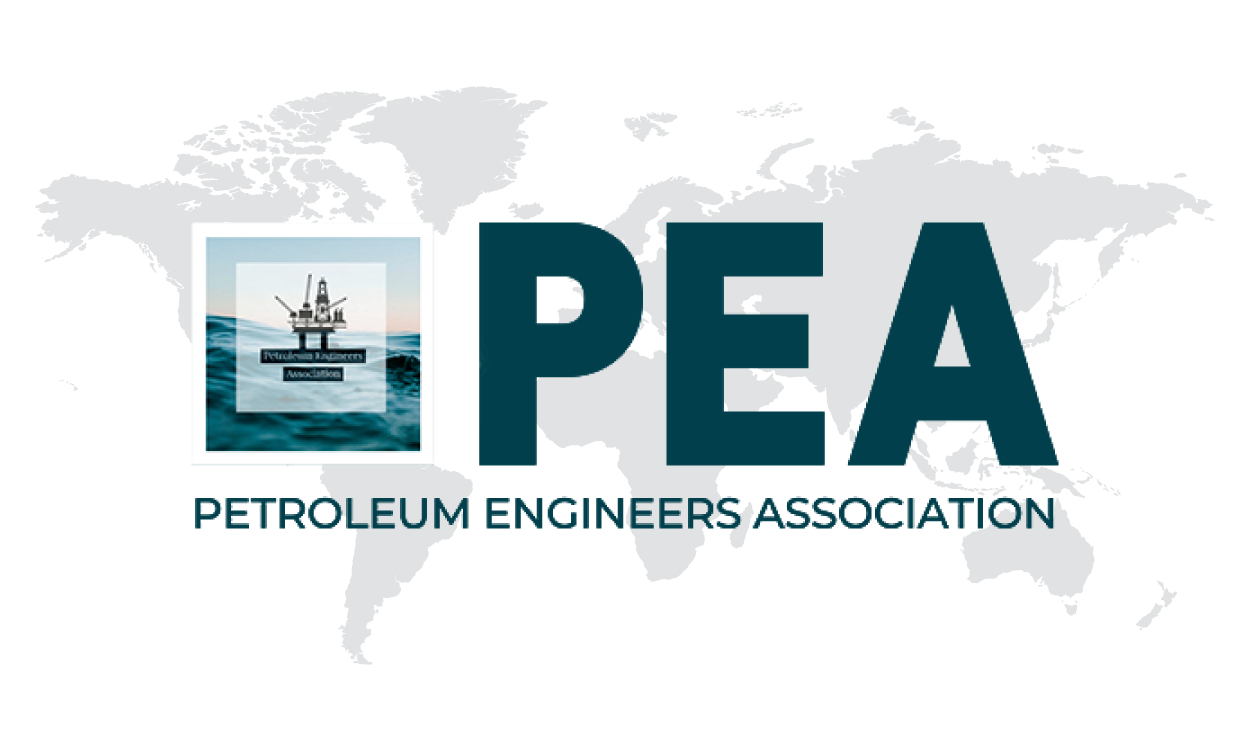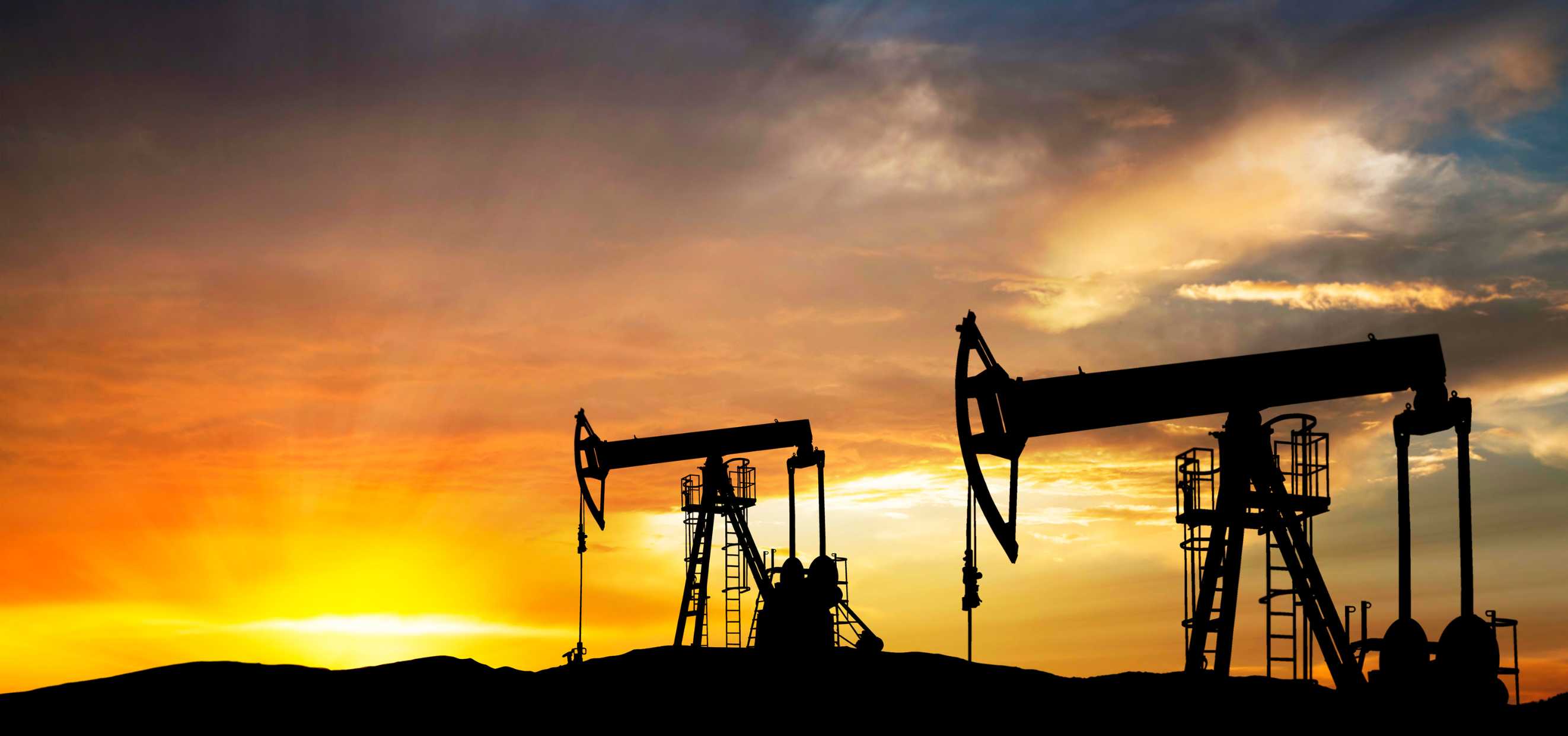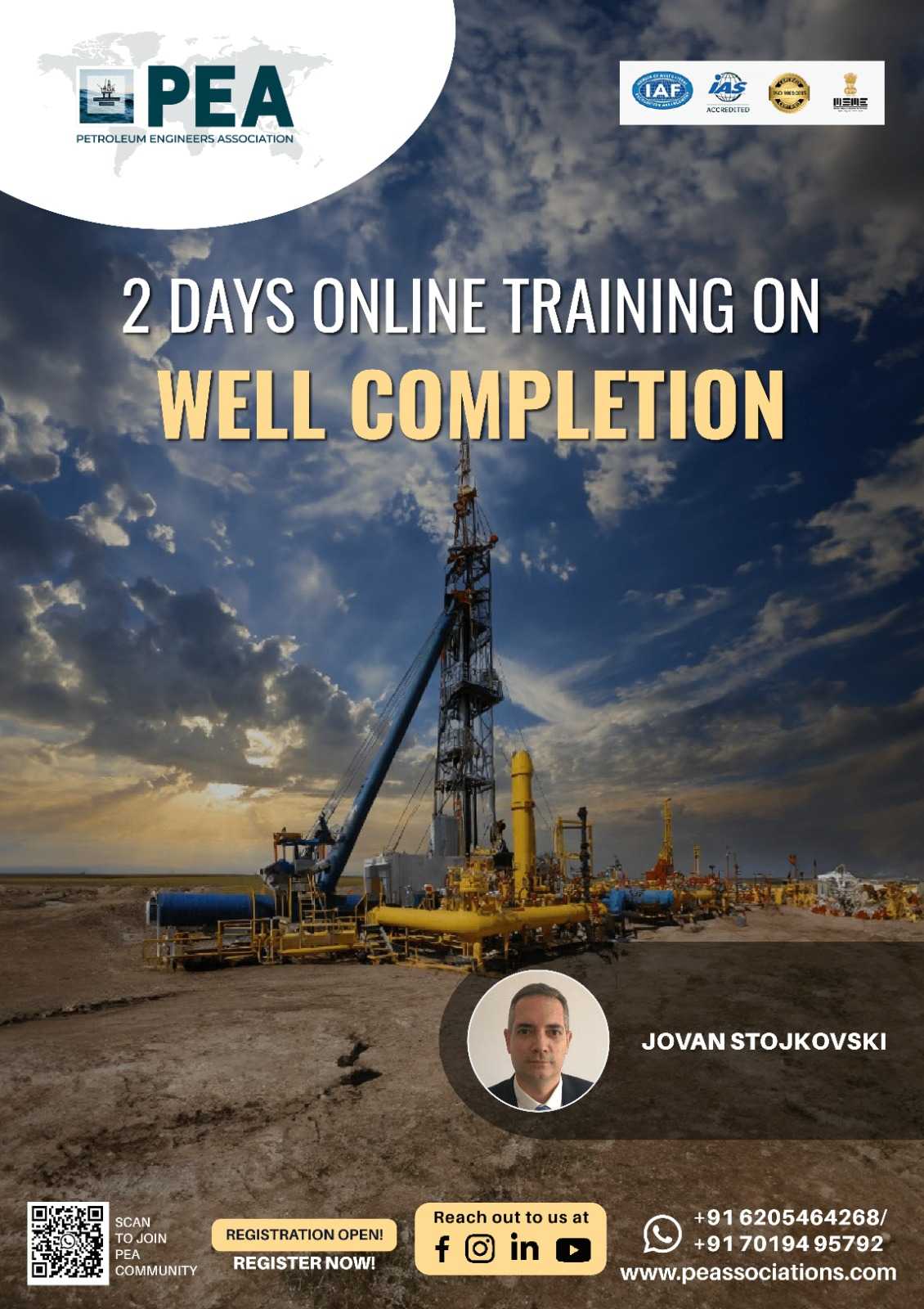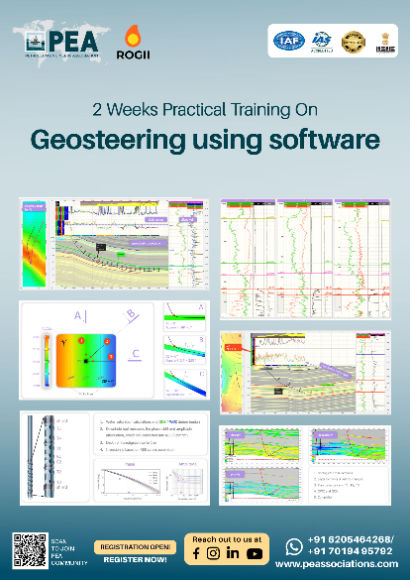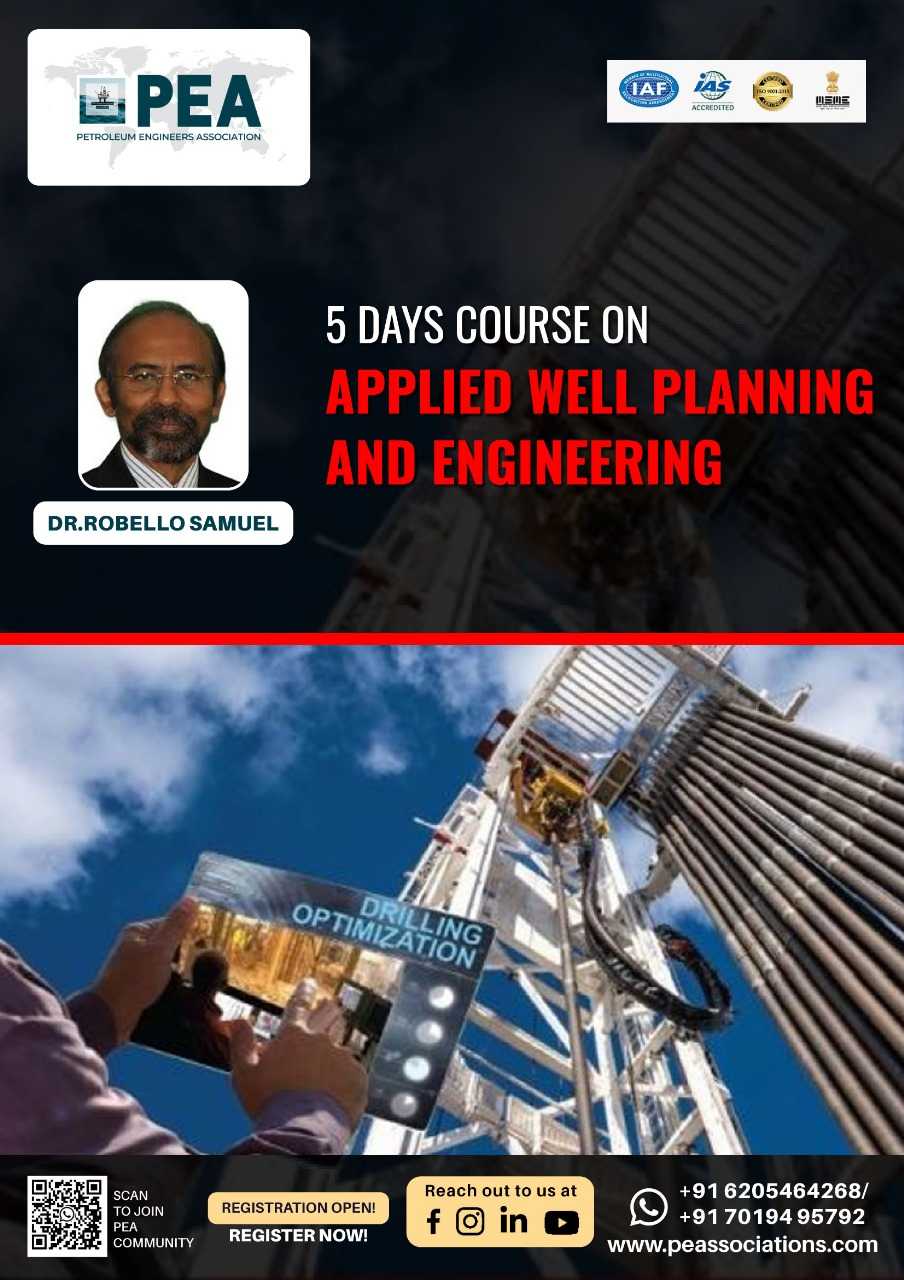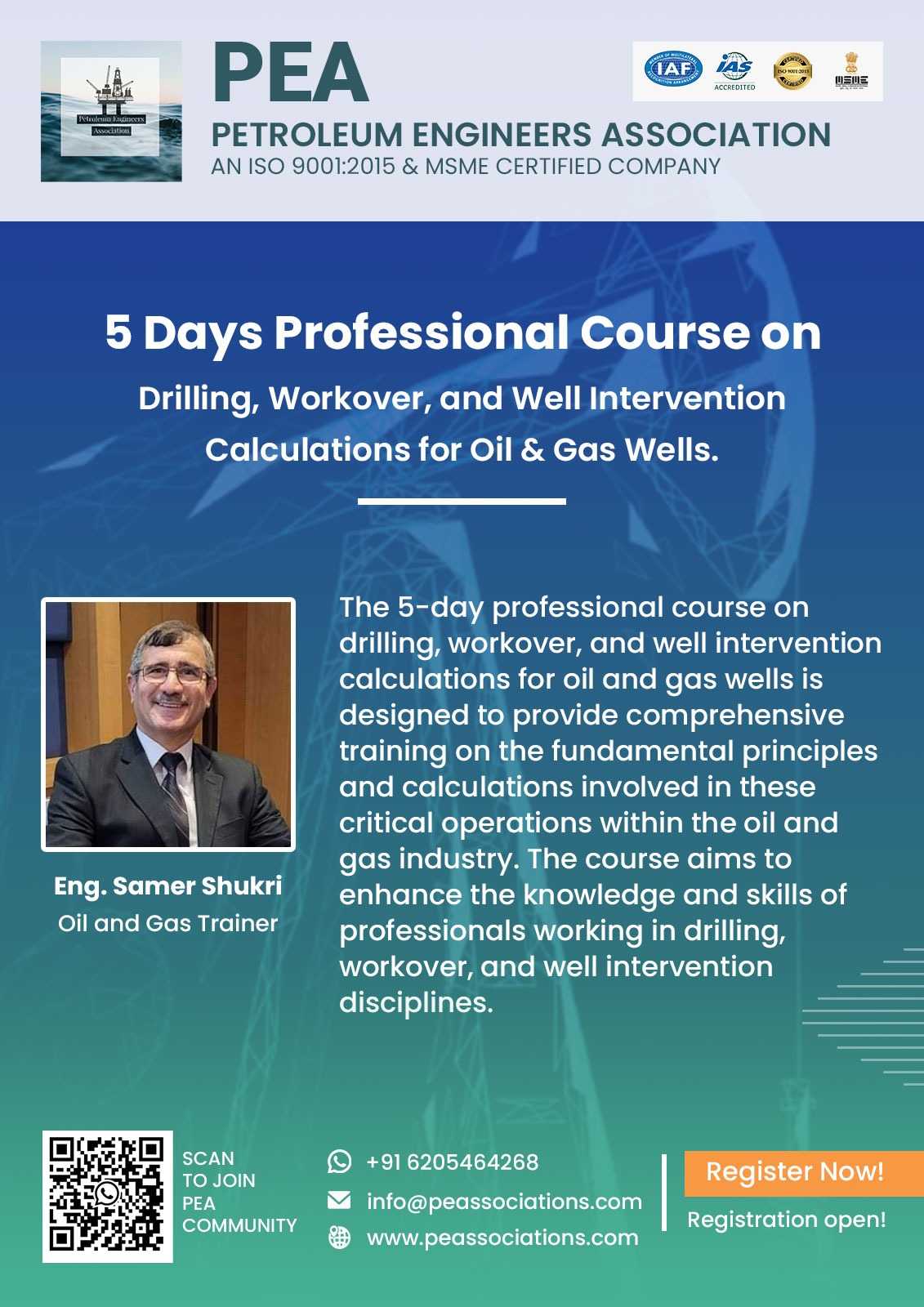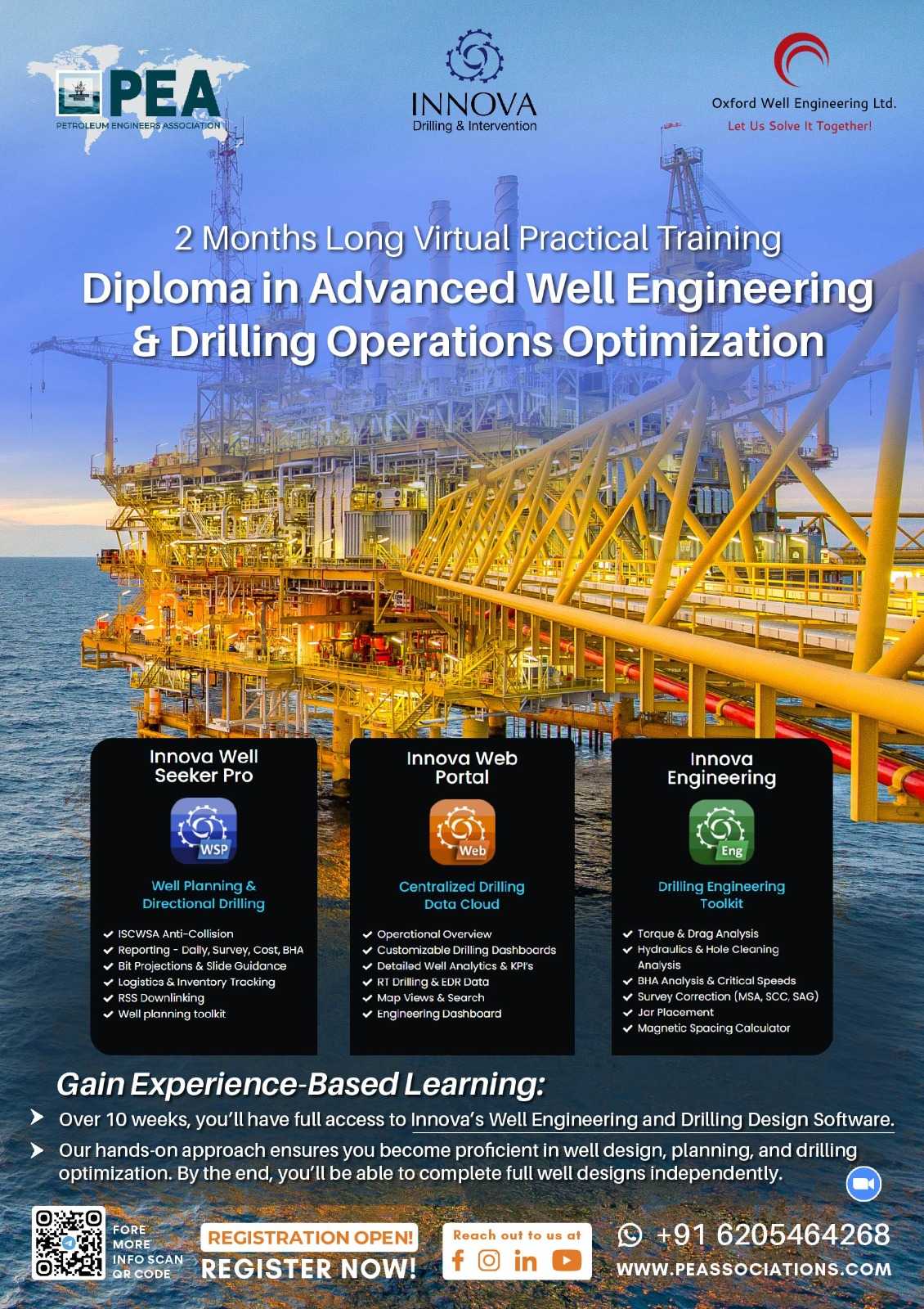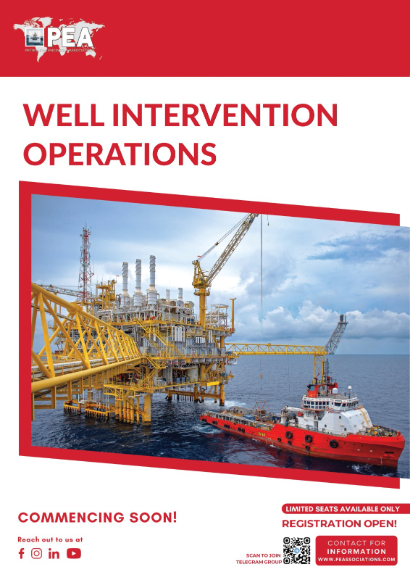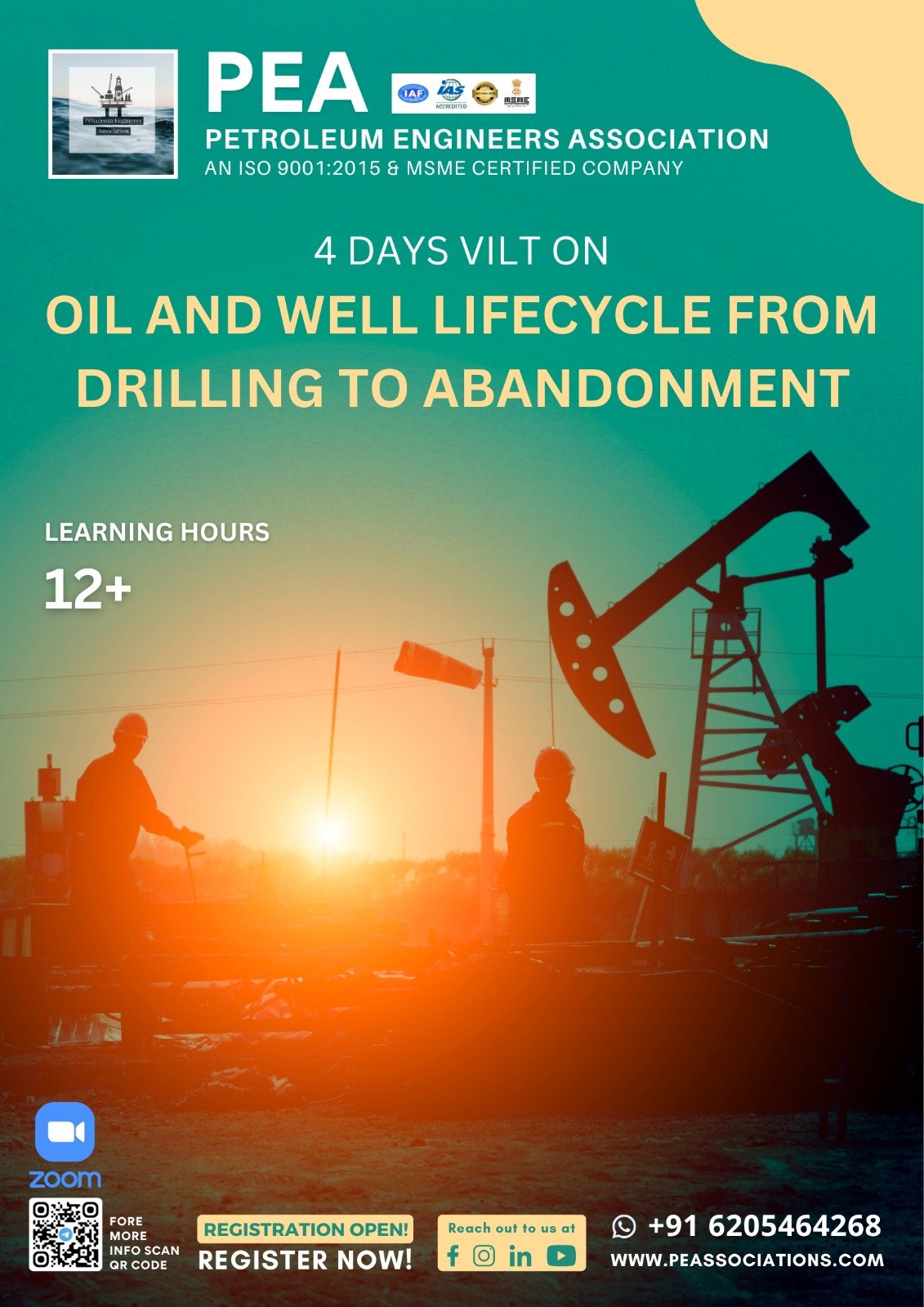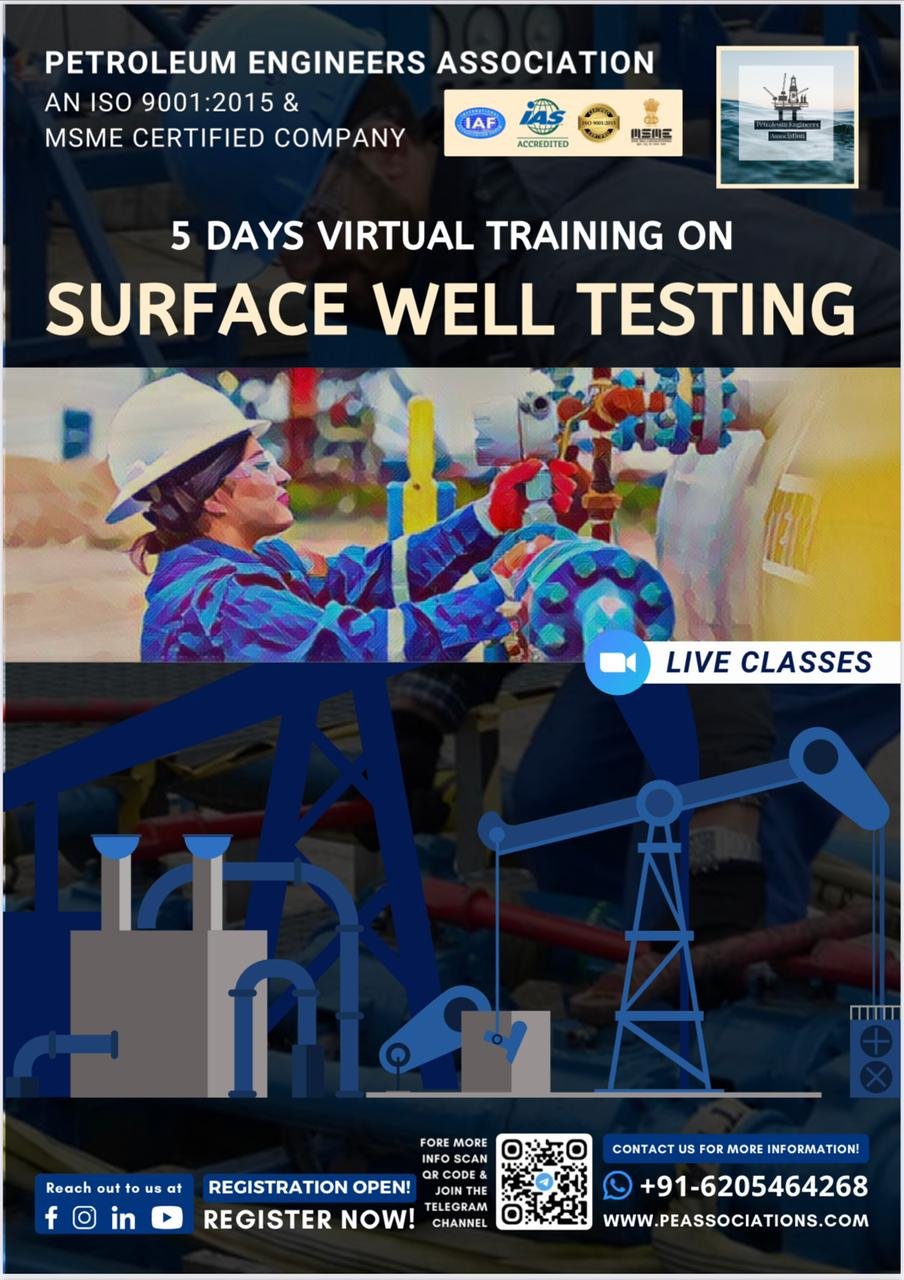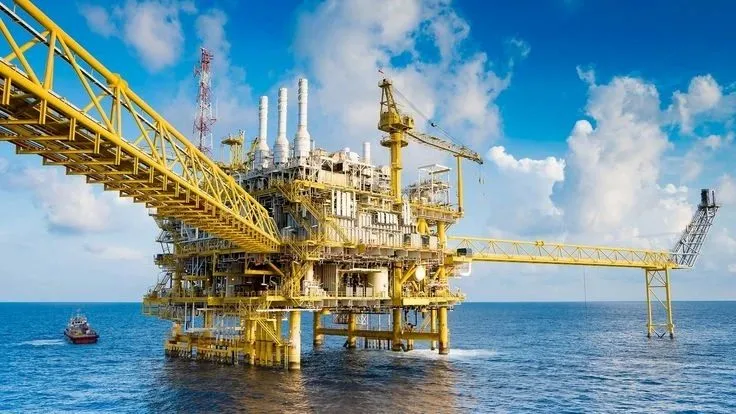| Code | Date | Time | Duration | Location | Currency | Team of 10 Per Person | Team of 7 Per Person | Early Bird Fee Per Person | Normal Fee Per Person |
|---|---|---|---|---|---|---|---|---|---|
| PEAWC25 | 29 - 30 Nov 2025 | 12:30 PM Indian Time Onwards |
6 Hours Per Day
|
Zoom Online
|
USD
|
950
|
1000
|
1250
|
1500
|
The Classes Will be on Saturday & Sunday from 12:30 Pm Indian Time Onwards Via Zoom live Classes.
Boost your team's skills and your budget! Enjoy group discounts for collaborative learning. Send an inquiry to info@peassociations.com.
Well Completion
This course offers a deep dive into the principles, methodologies, and tools used in modern well completion. It provides a solid foundation for designing, implementing, and managing well completions to enhance hydrocarbon production, optimize resource usage, and ensure well longevity.
Description
The "Well Completion" course is designed for professionals in the oil and gas industry who seek to master both foundational and advanced completion techniques. Participants will explore topics such as completion design, tools and equipment selection, perforation methods, and wellbore stimulation, all geared toward achieving optimal production. With a blend of theory and practical application, this course equips attendees with the necessary skills to design well completions that meet operational demands and regulatory standards, maximizing reservoir output and ensuring well integrity.
Demo Class
Well completion is a crucial phase in the lifecycle of an oil or gas well, involving the installation of the necessary equipment to bring hydrocarbons to the surface. This course covers a range of completion practices, from basic techniques to complex systems designed for challenging reservoir conditions. Participants will gain a comprehensive understanding of completion types, perforating, sand control, stimulation methods, and well integrity measures.
Identify, evaluate and recommend functional capability of completion strings for a variety of well types
Describe the purpose and generic operating principles for major completion equipment components
Identify limitation of well completion designs and potential failure mechanisms/operational problems with equipment
Assess well safety requirements and capabilities inherent in well design
Describe the integration of the various stages of completing a well
Plan general procedure to run a completion string and engagement of external services
Describe the requirements to pressure test and retain well control throughout the completion process
The course combines interactive lectures, real-world case studies, and practical exercises. Participants will engage in group discussions, scenario analysis, and hands-on activities that reinforce theoretical knowledge and apply it to practical scenarios in the oil and gas industry.
Improved well productivity and enhanced recovery rates
Reduction in well completion costs through better planning and design
Increased safety and operational efficiency in well completion practices
Enhanced workforce skills in completion operations, leading to better decision-making.
Develop expertise in well completion design, tools, and techniques.
Strengthen analytical and decision-making skills in completion operations.
Gain knowledge on state-of-the-art technologies and trends in well completion.
Enhance career growth opportunities by mastering advanced completion practices.
Build confidence in handling complex well completion scenarios effectively.
This well completion training course is suitable to a wide range of professionals but will greatly benefit:
Petroleum Engineers
Production Technologists
Drilling and Well Servicing Personnel
Production Personnel (Production Operators)
Day 1
Introduction to Well Completion
Well Completion design and planning process
Reservoir (Well) Completion & well types
Reservoir Considerations
Well Completion Design & mechanical Considerations
Well Completion types (NF, AL, OH, vertical/horizontal, single and dual completion)
Production Technology consideration (AL,SC,FA, Stim) & completion components
Artificial lift
Sand control
Flow assurance
Stimulation
Tubing stress analysis & tubing selection
Packer envelope
TBG/PKR interaction (fix/free to move)
TBG size/grade/weight/connection/metallurgy consideration/selection
Packer selection
Production Packer functions
Packer Types
Packers Generic Mechanisms
Permanent and Retrievable Packers
Locator Seals and Anchor Seals
Applications for Permanent and for Retrievable Packers
Setting Packers
Day 2
Completion tools selection
Subsurface safety valves function/types
Flow control devices (FLCP, SSD, LN & plugs)
DHG and CIM systems
OH completion tools
Completion fluid selection
Function of completion fluid
Selection of completion fluid
Wellhead and XMT Equipment selection
Perforating Operations strategy and gun system selection
Perforation methods and perforating equipment
Perforation selection and conveying methods (WL, TCP)
Perforating decision tree
Well completion operation steps and related services
Running the completion
Services needed during completion operation (SL, CT, TRS, Fluids, perforating, WBCO)
Well intervention during and after well completion
Future consideration in completion design
Well barrier philosophy during well interventions
Petroleum Engineers (drilling and completion engineers)
Production Technologists
Drilling and Well Servicing Personnel
Production Personnel (Production Operators)
On successful completion of this training course, PEA Certificate will be awarded to the delegates

Jovan Stojkovski has over 20 years of experience in the Oil and Gas industry, with a Master’s in Petroleum Engineering from the University of Belgrade.
Expertise in well production technologies, well completion and drilling, well integrity, perforation, coiled tubing, nitrogen services, and slick line/wireline operations.
Worked across diverse locations (Austria, Tunisia, Libya, Hungary, Serbia, New Zealand, Romania) with major companies like OMV, Total, Repsol, and Gazprom Neft.
Known for strong organizational skills, reliability, and commitment to delivering high-quality results; focused on driving technological and business growth and building strategic industry relationships.

